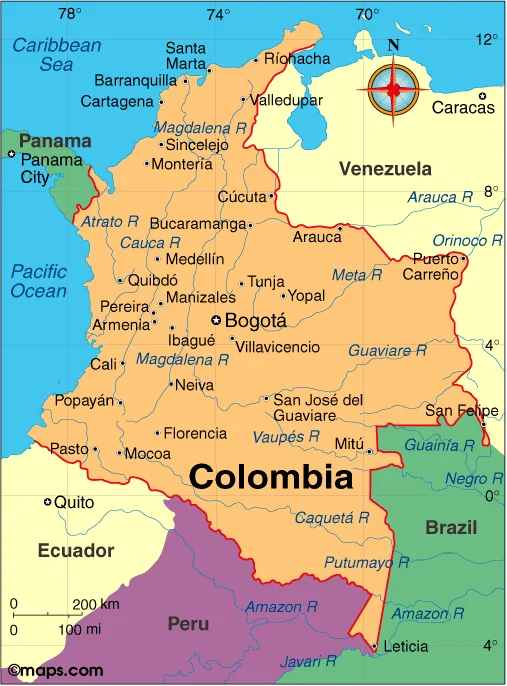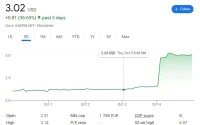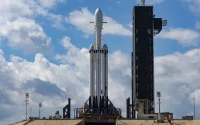Petro's Gamble: Is Colombia's Anti-US Stance Worth the Risk?
The Petro Doctrine: A Cost-Benefit Analysis
President Gustavo Petro's recent moves – suspending intelligence sharing with the U.S. following lethal strikes on boats allegedly carrying narcotics – have raised eyebrows, to say the least. Former President Trump's accusations that Petro is an "illegal drug leader" certainly don't help cool things down. Let’s be clear: this isn’t just about hurt feelings; it's about a fundamental shift in Colombia's geopolitical strategy, and it demands a hard look at the numbers.
The immediate trigger seems to be the U.S. military's actions in the Caribbean and eastern Pacific. Defense Secretary Pete Hegseth even posted images of a lethal “kinetic strike” on X. While details are scarce, the Colombian government clearly feels these strikes are a violation of sovereignty. But is this outrage worth the potential cost?
Consider Operation Venetic, the UK's response to the Encrochat hack. Two British men, Liam O'Brien and Robert Taylor, wanted for drug and gun trafficking, were just arrested in Medellin thanks to intelligence stemming from this operation. The Encrochat network (heavily used by organized crime, until its takedown in 2020) provided a goldmine of data. Cutting off intelligence sharing with the U.S. and potentially the UK (who have also reportedly paused sharing) throws a wrench into these kinds of operations. British Encrochat suspects arrested in Colombia - BBC Robert Taylor, for instance, had already been sentenced in absentia to seven-and-a-half years in prison back in February 2024. Are we really willing to jeopardize these wins?
Weighing the Human Cost
The situation is further complicated by the historical context. This year marks the 40th anniversary of the Armero tragedy, where the eruption of Nevado del Ruiz caused a mudslide that killed approximately 25,000 people. The lack of warnings in 1985 led to the creation of a special government agency for disaster response.
And this is the part of the story I find genuinely troubling. While the government has ostensibly improved its disaster response, are they truly prepared to handle the potential fallout from a weakened relationship with the U.S.? The investigation into the fate of 583 children missing after the Armero landslide is ongoing. What resources will be available for future crises if international cooperation diminishes? It’s a grim calculus, but it needs to be done.

The emotional weight of Armero is undeniable. The story of Omayra Sánchez, the 13-year-old victim viewed by many as a saint, is a stark reminder of the human cost of disaster. (Her gravesite is adorned with plaques thanking her for blessings). But sentimentality shouldn’t cloud strategic decision-making.
The Colombian peso ("dolar colombia" and "precio dolar colombia" are trending search terms, I see) will likely reflect any sustained cooling of relations with the US. We're talking about real-world economic consequences.
The Unquantifiable Risks
It's difficult to quantify the exact impact of suspended intelligence sharing. What percentage of successful drug interdictions rely on U.S. intelligence? What is the correlation between U.S. aid and Colombia's economic stability? These are questions that need answers, but the data is, understandably, closely guarded.
Moreover, consider Trump's history with the region. During his presidency, he sent an aircraft carrier strike group to the Caribbean and approved covert CIA operations inside Venezuela. While this might seem like a separate issue, it highlights the potential for escalation. A weakened relationship with the U.S. could embolden actors, both internal and external, who seek to destabilize Colombia.
Asthar Vreeswijk, a Dutch tourist, found Armero more moving than Pompeii due to its raw and untouched state. That rawness is a testament to the tragedy, but it's also a reminder of Colombia's vulnerability.
Trading Allies for Ideology?
Petro clearly views himself as a left-wing revolutionary, and this anti-U.S. stance aligns with that ideology. But is he prioritizing ideology over pragmatism? Is this a calculated risk, or a reckless gamble? The numbers, as always, will tell the tale. And I'll be watching.
A Reality Check
Petro's gamble could backfire spectacularly, leaving Colombia more vulnerable and isolated.










